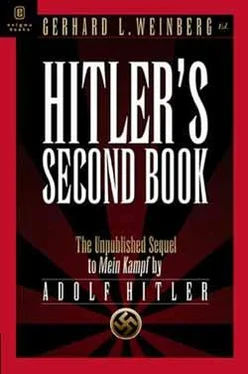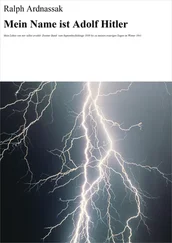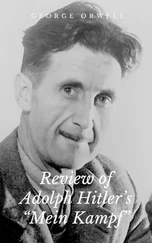In these days we have been afforded a glimpse into the activities and effectiveness of this old Germany in the field of foreign policy by the publication of the War Memoirs of the head of the American intelligence service, Mister Flynn [note 14].
I let a bourgeois democratic organ speak on this matter only for the purpose of a broader understanding.
(26th of June, 1928)
How America Entered The War
Flynn Writes About The Diplomatic Secret Service — By F. W. Elven, Correspondent Of The München Latest News — Cincinnati, Mid June
William J. Flynn has published a part of his War Memoirs in the weekly Liberty, which is much read here.
During the war, Flynn was the Head Of The United States Secret Service. The Service encompasses the whole country, and is brilliantly organised. In peacetime it primarily provides for the personal security of the President.
Its attention is enjoyed by whatever else in the national capital is in need of protection, or thinks it needs so. It keeps under surveillance all doubtful elements somehow suspected of connections with political tendencies hostile to the government and its spokesmen. During the war its principal task was to keep an eye on those who more or less loudly had made themselves noticeable in opposition to the war, or who merely were suspected of not being in agreement with the Wilsonian war policy. Germans also enjoyed its special care, and at that time many fell into the traps which had been laid everywhere by the Federal Secret Service.
From Flynn’s memoirs, however, we learn that the Secret Service had been assigned an important mission even before our entry into the war. In the year 1915, a full two years before the declaration of war, the most efficient telephone expert was summoned to Washington and assigned the task of arranging the leading telephone wires to the German and Austrian embassies in such a way that Secret Service officials could tap every conversation from any source that was held between the ambassadors and their personnel, as well as every conversation emanating from the embassy offices. A room was set up with which all the wires were linked in such an ingenious way that not even a single conversation could be missed. Service men sat in this room day and night, dictating the overheard conversations to the stenographers seated beside them. Every night the head of the Secret Service Bureau, that is, the author of the article in Liberty, received a stenographic report of all the conversations held in the preceding twenty four hours, so that on the very same evening he was able to communicate everything important to the State Department and to President Wilson.
Let us bear in mind the time this installation was created, at the beginning of the year 1915, that is, at the time when the United States still lived in peace with Germany and Austria-Hungary, and Wilson never tired of giving assurances that he harboured no hostile intentions against Germany. It was also the time when the German Ambassador in Washington, Count Bernstorff, neglected no opportunity to show due appreciation of Wilson’s friendly disposition and feelings for Germany and the German Folk. It was also the time when Wilson gave his confidant Baruch instructions to begin the gradual mobilisation of industry for war; also the time in which it became increasingly obvious, as the American historian Harry Elmer Barnes also sets forth in his book On The Origins Of The Great War, that Wilson was firmly decided to enter the war, and postponed the execution of his bellicose plans only because public opinion first had to be won over for these plans.
Flynn’s memoirs must finally remove the ground from the foolish chatter that Wilson was pushed into the war against his will by German submarine warfare. The tapping of the telephone wires leading to the German embassy took place with his knowledge. We also learn this from Flynn’s memoirs. The author adds that the material thus gathered against Germany contributed considerably to the eventual break. This can prove only that this put means in Wilson’s hands to win public opinion for the war long planned by him. And in fact this material was wholly and ideally suited for it. The Memoirs confirm to the fullest extent what unfortunately must still be said, that Germany at that time was represented in Washington in a downright incredibly incompetent and incredibly unworthy way. If we hear that in one passage Flynn writes that the stenographic reports prepared for him daily contained enough material to keep a divorce lawyer busy for months on end, then we get a general idea of what went on.
The Secret Service maintained women agents in Washington and New York whose job it was to sound out the members of the German Embassy, Bernstorff included, whenever anything important happened. One of these woman agents kept a better class apartment in Washington in which the gentlemen met their ladies, and where occasionally even Secretary Of State Lansing dropped in to hear what was new. On New Year’s Day, 1916, when the news of the sinking of the liner Persia became known in the national capital, Bernstorff telephoned five women one after the other in order to make sweet compliments to them and to receive similar compliments in return, although in view of the mood which news of the sinking of the Persia had left behind in the State Department and the White House, he really could not have been lacking in more serious pursuits.
One of the ladies complimented Bernstorff on the fact that he was a great lover, and always would be, even were he a hundred years old. The rest of the gentlemen of the embassy were not differently built. One, whom Flynn designates as the best diplomatic aide in the embassy, had a lady friend in New York, a married woman, with whom he had a daily telephone conversation which each time cost the German Reich twenty dollars, and whom he visited frequently. He told her about everything that happened, and she then took care to bring this information to the right places. Even quite vulgar remarks about Wilson and his consort were made during the telephone conversations, and thus we can without difficulty imagine that thereby the mood of the White House vis-à-vis Germany did not get any friendlier.
From the conversation held at the beginning of March, 1916, we learn how little the embassy knew about the country and the Folk, and with what childish plans it concerned itself. At that time a bill introduced by Senator Gore lay before Congress to the effect that a proclamation be issued warning the American Folk not to use armed commercial vessels. President Wilson most bitterly fought against the proposal. He needed the loss of American lives in order to incite feelings against Germany. People in the German embassy knew that the prospects of the bill were not favourable, so they earnestly concerned themselves with plans to buy Congress.
Only at first they did not know where to get the money. On March 3rd, the Senate decided to postpone the Gore Bill provisionally. The vote in the House was supposed to follow a few days later. So the plan first to buy the House was further eagerly pursued, but in this case at least Bernstorff was reasonable enough to advise against the plan decisively.
The reading of the Flynn article must leave a feeling of deep indignation in the veins of every man of healthy German blood, not only over Wilson’s treacherous policy, but rather, and especially, over the incredible stupidity with which the German Embassy played into the hands of this policy. Wilson duped Bernstorff more and more from day to day. When Colonel House, his adviser, returned from his European journey in May, 1916, Bernstorff travelled to New York to meet him there. Wilson, however, who vis-à-vis Bernstorff had acted as though he had no objections to this meeting, secretly instructed House not to have anything to do with the Count, and to avoid him at all events. Thus it happened. Bernstorff waited in New York in vain. Then he went to a nearby beach and let himself be photographed in a bathing suit with two lady friends in a very intimate position.
Читать дальше












